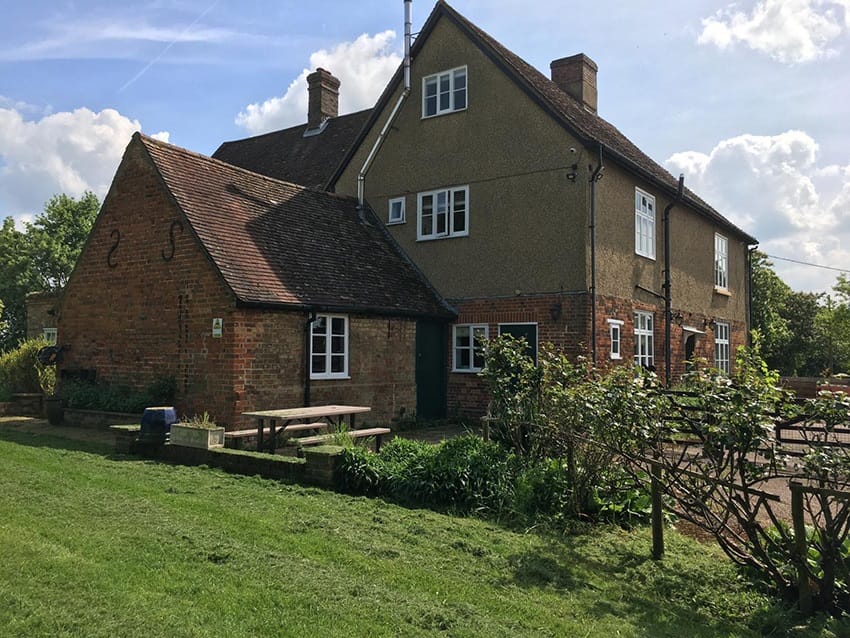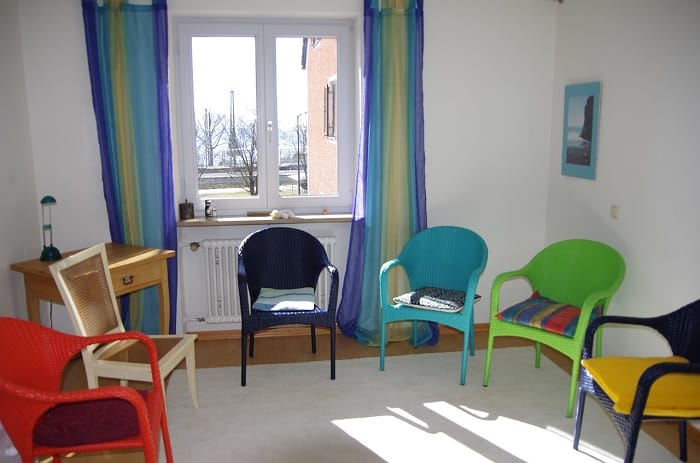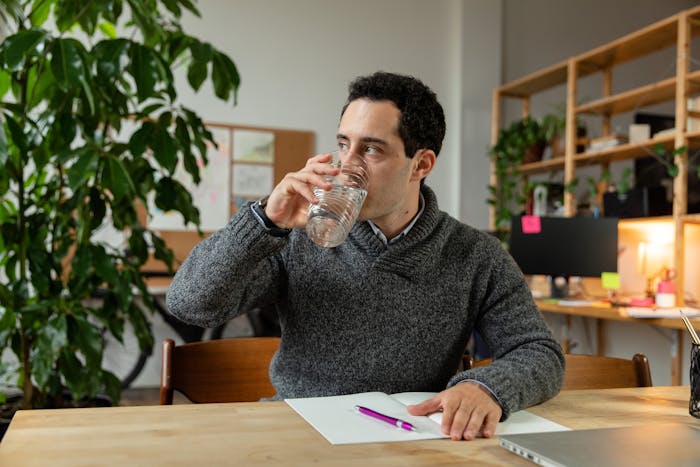Cambridge is praised for the quality of its drug and alcohol rehab clinics across the county.
Addiction results in serious consequences in everyday life, and is a big concern for public health in the UK.
Since Cambridge offers a wealth of treatment options, people seeking drug and alcohol addiction treatment are often confused by so much choice.
Rehab 4 Addiction offers advice and referrals to drug and alcohol rehab for people seeking addiction treatment in the Cambridge area.
Whatever the nature of your addiction or dependence, there is always help available.
The information gained during assessment allows our advisor to select an alcohol or drug addiction treatment option tailored to your particular needs.
Choosing the right treatment programme at drug and alcohol rehab from the outset means you are much more likely to succeed in your substance addiction recovery goals.
Rehab 4 Addiction in Cambridge
Address: 20 Mercers Row, Cambridge, Cambridgeshire, Cambridge. CB5 8HYTelephone: 01223 634 572
Business hours: Open 24 Hours/7 days a week
Services in Cambridge: Addiction Treatment, Alcohol Detoxification, Alcohol Rehabilitation, Drug Rehabilitation, Residential Rehab for Addiction, Alcohol Home Detox

Whether to attend drug or alcohol rehab Cambridge as an inpatient or as an outpatient is an important decision to contemplate.
Many people would be suitable for treatment on an outpatient basis as they will receive treatment, but still be able to live in their home in Cambridge and be surrounded by supportive, familiar people.
However, there are some people who due to their circumstances should strongly consider attending a drug or alcohol rehab service in Cambridge as an inpatient for 4 – 6 weeks.
These people include:
Your excessive drug or alcohol consumption has led to you physically abusing close family members or friends
If you feel any of the above categories apply to you, please get in touch with Rehab 4 Addiction to find out about the latest drug and alcohol rehab availability in the Cambridge area.
For help accessing a drug and alcohol rehab near you, give our team a call on 0800 140 4690

Seeking the help of a professional referral service like Rehab 4 Addiction would be required to go through an in-depth assessment of their situation during the admission process in order to establish the best course of action in Cambridge.
This assessment would feature the 6 dimensions of The American Society of Addiction Medicine (ASAM) criteria. [1]
The 6 dimensions cover the biological, psychological and social factors that need to be taken into account when devising a person’s drug and alcohol rehab treatment plan.
Three of the dimensions measured at drug and alcohol rehab in Cambridge relate to your present level of substance intoxication and an assessment of your current physical and mental health.
For example, whether you have any significant conditions that may limit your capability to fully engage with treatment.
The fourth ASAM dimension seeks to establish whether you are ready to change your substance-related behaviour and commit to treatment, or whether you are resisting changing at all.
The next dimension assesses how likely you may be to relapse, whether during or after treatment at drug and alcohol rehab.
The final dimension examines how other aspects of your wider social environment can either positively or negatively affect your progress.
Important points to consider here are your work and money situation, whether you have any ongoing legal cases in your life and your family situation and home life.
If you feel you have a substance misuse disorder, your drug or alcohol rehab provider will assess the severity of the disorder by using DSM-5 criteria. [2]
You will either be diagnosed with a mild, moderate or severe substance misuse disorder at drug and alcohol rehab in Cambridge, depending on how many of the 11 set criteria your behaviour indicates.
Each of these work on a point-based system; the more points you have, the higher the indication of a behavioural addiction or an addiction to drugs or alcohol.
How does drug and alcohol rehab help you beat addiction?
When you first get to an alcohol or drug rehab clinic in Cambridge, or possibly a sober living house, you will undergo a psychiatric assessment in order to be diagnosed and receive appropriate treatment.
This will be done by a psychiatrist of other medical professional. This will help you on your path to sobriety.
You may also need to have a medically-assisted detox at drug or alcohol rehab.
This is because for those going through heroin withdrawal, or have a physical dependence on a substance, the symptoms can be very dangerous.
You may receive a prescription drug course at drug and alcohol rehab, such as Librium or Chlordiazepoxide for alcohol withdrawal symptoms.
Long-term consequences of substance abuse can include hepatitis, wernicke encephalopathy, alcohol withdrawal syndrome and more.
After drug and alcohol addiction treatment in Cambridge, you will make and plan a free aftercare programme which will help prevent relapse after you leave an alcohol and drug rehabilitation facility.
Every free aftercare program will be tailored to the individual needs and preferences of the person receiving them.

Are you concerned about anyone whose substance misuse has got out of control and is damaging their health and relationship with family members and friends?
There are interventions you can utilise to try and persuade them to attend drug or alcohol rehab Cambridge.
An intervention is a pre-planned strategy used to try and initiate a change in a person’s behaviour.
There are many intervention strategies available and most of them involve using the family and close friends of the substance user to try and make them see how their behaviour is affecting them, and people in their close circle.
To start your recovery journey at a Cambridge drug and alcohol rehab near you, call us on 0800 140 4690

It is difficult to pinpoint the exact cost of alcohol & drug rehabilitation in Cambridge as there are many different factors that determine the overall cost, all of which can differ for each person.
Some people may decide to have a room to themselves at drug and alcohol rehab, whilst others will be satisfied sharing with other clients.
The majority of people tend to remain in treatment for 28 days. If you chose to stay in a room on your own for this period of time the cost would be approximately £10,000 – £12,000.
However, sharing a room with others for the same period would cost around £6,000.
The quality and content of the chosen alcohol and drug rehabilitation facility in Cambridge or near Cambridge that you opt for would also affect your overall cost.
You can expect to pay in the region of £1,500 for home detox treatment.
You can also pay for a stay at an alcohol & drug rehabilitation facility via a policy of health insurance.
Most alcohol and drug rehab centres will accept all major health insurers, such as BUPA and AXA.
Whether your policy covers addiction treatment is a matter you will need to discuss with your insurance provider.
Please get in touch with Rehab 4 Addiction for a more detailed estimation of your overall cost if you are looking for treatment in the Cambridge area.

People seeking to enter treatment for substance misuse can either apply for council or NHS-funded drug and alcohol rehab in Cambridge or near Cambridge, or pay for the cost of the treatment themselves.
There are pros and cons to either option.
Financing private drug and alcohol rehab out of your own pocket will enable you to enter treatment in Cambridge much quicker, this could be within several days of you making the decision to proceed with treatment.
Having private funds will allow you to choose which drug or alcohol rehab centre you would like to have treatment in and you can select a treatment centre that possesses the resources to meet most of your treatment requirements.
Clients at a private drug rehabilitation in Cambridge facility tend to be able to access higher-quality treatment and will be in a location that has more pleasant surroundings and a higher staff to patient ratio.
The cost for a private alcohol and drug rehab centre is obviously greater although you can select your own treatment options that fit in with your own individual budget.
There is still much work for you to do in treatment though, merely paying for the treatment does not lead to an overnight recovery. You should still show commitment, self-reflection and motivation to turn things around.

The amount of time spent attending drug or alcohol rehab in Cambridge can vary from person to person.
If you are just receiving alcohol or drug detox treatment then it is likely you will be there for one week if undergoing alcohol detox.
However, for opioid detox, you could be at a drug or alcohol rehab or detox clinic for up to 3 weeks depending on the severity of your condition.
If you are required to stay for a longer period of time and engage with the psychosocial elements of your recovery such as:
Then it is likely you will be there for between 4-6 weeks depending on how much time your alcohol or drug detox treatment takes and the extent of your budget.
On average the majority of people attend drug and alcohol rehab for 28 days.
Please contact us on 0800 140 4690 if you want to learn more about specific lengths of time you can expect to spend at a drug and alcohol rehab in Cambridge

Anyone withdrawing from alcohol can suffer from very unpleasant side effects such as fever, nausea, vomiting, headaches and sweating.
Anyone who has been diagnosed as having a severe addiction to alcohol is in danger of experiencing seizures which can put their health in jeopardy.
When initially entering alcohol rehab treatment for alcohol dependency the first goal will be to manage the withdrawal of alcohol. This takes place over the course of a week to 10 days.
Due to the life-threatening nature of withdrawing from high levels of alcohol consumption regular medical supervision is required.
The staff will know exactly how to treat your withdrawal, usually by using medication that is able to guard against any possible seizures.
Librium is one of the drugs available at alcohol rehab that can ease your withdrawal symptoms and make your withdrawal more comfortable.
This prevents seizures, convulsions and tremors.
Once the level of alcohol in your body has been reduced through the medical detox process, you’ll then begin to receive various psychosocial therapies at drug and alcohol rehab.
This enables you to work on the psychological and social reasons that led to your substance misuse.

Examples of the types of interventions that you may be offered at drug and alcohol rehab include:
These therapies will help provide you with the skills and knowledge to manage your thoughts, and negotiate social relationships more positively and remain substance-free.
Please contact us on 0800 140 4690 if you have anything you wish to discuss with us about enrolling at a drug or alcohol rehab in Cambridge

Addictions that can be treated at drug and alcohol rehab include:

There are many types of therapies you will come across when undergoing drug and alcohol rehab treatment for addiction in Cambridge.
We have listed a few of the more common therapies used below.
CBT will feature prominently in many people’s rehab treatment plans in Cambridge.
This approach focuses on getting the client to reflect on, understand and finally change their thought processes which may have been unhelpful and irrational and played a significant role in the development of their alcohol and drug misuse.
CBT is used to arm people with a new array of cognitive techniques in order for them to manage difficult situations in a calmer and more rational way than they previously did.
CBT can boost people’s self-esteem and improve the way they think about themselves, the way they deal with criticism and how they react to events that happen to them.
CBT encourages patients to better understand why they have developed an addiction and address the root causes of addictions.
DBT is used at rehab to help you understand and deal with the intense feelings you are experiencing.
You’ll earn under the guidance of a therapist how to deal with these feelings more effectively without them becoming one of the root causes of addictions.
DBT helps people work through two different issues that they may be struggling with and help them reconcile these issues to in order to move away from drug and alcohol abuse.
The issues in question relate to people’s ability to accept who they are and at the same time develop the skills necessary to form new, healthier behaviours.
One of the most important features of any rehab treatment plan for substance misuse is Motivational Interviewing (MI).
MI is a strategy used by addiction therapists to try and trigger a change in people’s behaviour and is used to try and push people through the Stages of Change Model to help them find the motivation they need to change their behaviour for the better.
Trained therapists use MI to overcome the client’s resistance and help them find significant reasons that fuel their motivation to move forward.
When carrying out MI therapists need to show empathy and support towards the client rather than be confrontational as this has been shown to facilitate a better client/therapist relationship and therefore a better outcome for the client.
Please contact us on 0800 140 4690 if you have any questions about traditional therapies in Cambridge

There are various Holistic therapies available through rehab services in Cambridge that can have a positive effect on your mental health, most of them have a creative element that can allow the body to process and release any previous trauma that may have been repressed.
This involves having sessions with an equine therapist and a horse.
Working therapeutically with animals has been found to improve an individual’s ability to communicate effectively with people, manage their anger better than they previously did and make them more assertive when it comes to setting boundaries in their life, all of which promotes positive mental health.
Horses are compassionate animals and very good at reading people’s body language and emotional state.
The interactions with a horse through a therapist allow people at rehab to reflect on their behaviour and understand how their behaviour is received by others, this allows them to make the necessary changes in themselves to have better relationships in the future.
Only certain rehabs in Cambridge will be able to offer this treatment.
Art provides an excellent avenue for people at rehab to process the unwanted negative emotions that have been stored in the body after experiencing trauma and pain over the years.
Sometimes people do not have the words available to them to describe how they are feeling, or what has happened to them.
Working in a creative way enables the brain to articulate these feelings in a more symbolic way to convey the emotions they have been unable to.
Art has also been found to work well when working with denial or shame.
Most rehabs in Cambridge will be able to offer this therapy.

Music therapy provides another creative outlet to help express blocked negative emotions that have remained in us due to earlier trauma and pain.
Experimenting with music on an intuitive level under the guidance of a music therapist at rehab will help people improve their ability to communicate and boost their emotional well-being.
The relationship you build with the therapist will build the foundation for the success of this treatment.
The majority of rehabs in Cambridge will be able to offer this therapy.
This form of therapy is based outdoors and enables people to benefit from the therapeutic qualities associated with being in nature.
Rehab patients will build resilience, team working and problem-solving skills by engaging in a series of challenges against the backdrop of forests, rugged coastlines and moorlands.
People obtain a sense of accomplishment, belonging and enhance their energy levels and self-esteem by engaging with this form of therapy
Not every alcohol & drug rehab centre in Cambridge will be able to offer this therapy.

Group therapy is very useful during rehab in helping us understand how the quality of our relationships with others contributed to our substance misuse and our mental health in general.
Group therapy will help us connect to others who have been through tough times and in this context, we can both receive and offer support, both of which promote positive mental health.
Residents at rehab receiving group therapy can also learn important relational skills such as empathy, patience and understanding the perspectives of others.
People will also realise that they are not the only ones that have been through difficult times and they will be able to feel part of a strong community that will empower them.
Every public and private drug rehab centre in Cambridge will practice some kind of group therapy.
There is a wide range of individual therapy options available that can help people understand the psychological reasons for the development of their alcohol and drug misuse.
Working with a therapist at rehab can help you heal trauma, learn coping strategies for tough emotions and develop a sober mindset.
There are several types of therapies available and your treatment plan will recommend one that suits your individual needs.
Every rehab centre in Cambridge will practice some kind of individual therapy.

Family therapy can form an important role in a person’s treatment at rehab.
Experiencing negative family dynamics earlier in life can lead to substance misuse, particularly if there is a history of family alcohol and drug abuse.
Engaging all members of a family in therapy can help everyone understand their own role in the development of a person’s substance misuse, and prevent enabling or co-dependent dynamics.
Although every public and private rehab centre in Cambridge will offer family therapy, it may only be appropriate in certain cases.
In rehab, you’ll learn that co-dependency is a common behavioural pattern in substance misusers and their close family.
This behaviour can harm relationships by fostering over-reliance on others while neglecting your own needs.
Therapy helps you recognise and address your needs and understand how your actions impact others.
Co-dependent behaviours, like controlling or manipulating others to meet personal needs, may hinder recovery progress for both substance misusers and their families.
Most rehabs in or near Cambridge can provide treatment for co-dependency.

Most rehab treatment plans will feature a 12-step component based on the main principles of AA.
The 12-step rehabilitation programme provides people with the support they need whilst working through the challenges of a long-term condition in which they have become unable to control their behaviour around substances.
Key elements of the programme enable people to understand the importance of fellowship in helping them move forward and make positive strides.
The programme also provides people with an opportunity to reflect on their previous and current behaviours, beliefs and attitudes and how these can be changed.
There is also a spiritual aspect involved where people can contemplate their own spirituality and how this can help them move on from their drug and alcohol misuse.
Other types of therapies available at rehab include:
In addition to all of the above, there are a range of other psychiatric treatment options available to you at rehab.
These can include contingency management, coping mechanisms, and person-centered care.
Please contact us on 0800 140 4690 if you have anything you wish to discuss about recovery in Cambridge

A significant majority of people who enter rehab in Cambridge for SUDs will have a dual diagnosis.
This means that they may be diagnosed by mental health specialists with one or more mental health issues – such as depression, anxiety or schizophrenia – alongside their SUD.
Clients with a dual diagnosis need to be treated with great sensitivity by the staff at treatment centres because of the complications that arise from having two mental health disorders.
Mental health conditions that can be treated at rehab include bipolar disorder, borderline personality disorder, eating disorders, obsessive compulsive disorder and post traumatic stress disorder (PTSD).
Our experts are specialists in treating dual diagnosis patients and possess expert knowledge about all mental health conditions and how each one specifically effects alcohol and drug addictions.
Rehab will be able to devise a personalised treatment programme with constant medical monitoring designed to take into account both conditions in your dual diagnosis.
You can also find general mental health support at Rethink Mental Illness, Papyrus, Young Minds, Samaritans and Mind UK.
Please contact us on 0800 140 4690 if you have any concerns about mental health support at Cambridge rehabs

Relapse prevention skills are a vital tool for anyone recovering from a SUD, whether they are recovering in Cambridge or anywhere else.
After going through treatment and being abstinent for a period of time relapse prevention skills seek to maintain this positive behaviour into the future, allowing them to facilitate long-term recovery.
This is achieved by identifying the high-risk situations which may lead to some relapsing back into drug and alcohol abuse.
This is so the person is equipped to respond in a more positive way to addiction triggers, and be able to resist the urge to consume alcohol or drugs.
Examples of high-risk situations include:
Rehearsing what to do at rehab will reduce the likelihood of the person acting impulsively as they will already have their planned reaction in place.

There are other sources of support available if you feel that rehab is not for you.
These include:
A home detox process in when you receive treatment as an outpatient under the supervision of a GP or a psychiatrist.
The downside of this is that you will not be receive 24-hour medical support.
Being an outpatient also means that you may be tempted by distractions and negative influences that may be present in your home environment.
There is funding available for those in Cambridge who require rehab treatment but do not have the money to pay for it themselves.
However, it is more than likely that there will be a lengthy process in both applying for funding and having it approved.
There is a strong chance that there will be many people in Cambridge ahead of you on the waiting list.
The application process is time-consuming due to the forms and documents required from medical professionals to support your application and the detailed information required in order to apply.
There may be a difference in the quality of the services when compared with private drug and alcohol rehab clinics in Cambridge and near Cambridge, as the finances determine the type and quality of treatment that is included in your funding.
You may not, therefore, be able to receive all the services that your treatment plan recommends.

Charities offer addiction treatment that can be accessed alongside rehab, after you leave rehab, or as an alternative.
Free and NHS-run [5] services in Cambridge include:
Address: Mill House, Mill Road, Cambridge, CB1 3DF
Telephone: 03005 550 101
Website: https://www.changegrowlive.org/drug-alcohol-service-cambridgeshire/cambridge
Address: Brookside Family Consultation Clinic, 18a Trumpington Road, Cambridge, CB2 8AH
Telephone: 01223 465 100
Website: https://www.cpft.nhs.uk/service-detail/service/child-and-adolescent-mental-health-services-camhs-63/

Address: 152-154 Mill Rd, Cambridge, CB1 3LP
Telephone: 01223 214 614
Address: Office 44 Pinnacle House, Newark Road, Peterborough, Cambridgeshire, PE1 5YD
Telephone: 01733 857 870
Website: https://www.turning-point.co.uk/
You can also reach out to organisations such as Al-Anon, Alateen, We Are With You, and Samaritans.
Additionally, places such as the National Association for Children of Alcoholics, the National Institute for Health and Care Excellence, and the NHS Foundation Trust are here to help.
Please contact us on 0800 140 4690 if you want to learn more about private and residential rehab addiction treatment in Cambridge

There are support groups available in the Cambridge area that you can contact for support as you seek to recover from substance misuse.
Groups like Alcoholics Anonymous meetings, [6] Narcotics Anonymous meetings [7] and Cocaine Anonymous meetings [8] are some of the most popular peer support groups in the UK.
These groups are not linked to any religions, medical organisations or government agencies, and there are no medical personnel or therapists present.
Everyone in attendance at AA meetings, NA meetings or their equivalents has been through similar experiences and supports each other showing compassion and understanding. There will be an opportunity to work through the 12-step treatment programme as well.
Several peer support groups regularly meet in/near Cambridge.
There is the opportunity to have treatment for substance misuse as an outpatient where local NHS addiction treatment services or your GP can organise a plan that meets your treatment needs in a way that means you do not need to attend a rehab centre.
Home detox can be arranged and they can also set up access to psychosocial services and support groups in the area.
SMART is a national charity [9] specialising in therapeutic treatment programmes for people looking to overcome substance misuse.
They have designed an alcohol and drug rehabilitation programme that contains cognitive-based techniques to help support you and allow you to gain valuable skills in dealing with the psychological challenges of substance misuse, such as boosting self-esteem and understanding your relapse triggers
Their treatment programme includes 4 key points which enable people to maintain their motivation for change. These 4 points assist in coping with cravings, bringing balance to people’s lives and dealing with challenging thoughts and feelings.
SMART has a strong network throughout the UK and their treatment programmes can be accessed online as they have an array of trained facilitators available to help guide people through their programme.
Please contact us on 0800 140 4690 if you have anything you wish to discuss with us
Ask your GP for a list of services in your area, to find more help and resources for drug and alcohol addiction.

Contact Rehab 4 Addiction today for immediate admission into a Cambridge rehabilitation centre.
Please contact us on 0800 140 4690 if you wish to discuss anything you have read on this webpage or if you would like to take the first step and book an appointment.
One of our qualified representatives will be able to talk you through all the drug and alcohol rehab options in Cambridge which are open to you.
Alternatively, you can send us a message leaving your contact details and we will be in touch very shortly.
All of the alcohol and drug rehab centres we recommend are Care Quality Commission (CQC) registered (England and Wales) or regulated by the Care Inspectorate (Scotland).
Get help for addiction across Cambridgeshire including in Huntingdon, Peterborough, Ely, St Neots, St Ives, Ramsey, Littleport, Sawston, Yaxley, Godmanchester, Wisbech, Whittlesey, Soham and many more.
This article was written by Boris Mackey. You can connect with Boris online at LinkedIn or X.com.
 After completing or trying your best for Dry January, it can be tempting to count the days left until you can give it all up and return to drinking. But there are multiple benefits to maintaining your abstinence into February and longer. During Dry January, your liver begins to repair itself, say if you were […] .... Read More
After completing or trying your best for Dry January, it can be tempting to count the days left until you can give it all up and return to drinking. But there are multiple benefits to maintaining your abstinence into February and longer. During Dry January, your liver begins to repair itself, say if you were […] .... Read More
 Substance addiction, also referred to as Substance Use Disorder (SUD), is a chronic and relapsing brain disease that affects both physical and psychological functioning. It develops when repeated exposure to drugs or alcohol alters brain chemistry, particularly the reward and motivation systems, leading to compulsive substance use despite harmful c .... Read More
Substance addiction, also referred to as Substance Use Disorder (SUD), is a chronic and relapsing brain disease that affects both physical and psychological functioning. It develops when repeated exposure to drugs or alcohol alters brain chemistry, particularly the reward and motivation systems, leading to compulsive substance use despite harmful c .... Read More